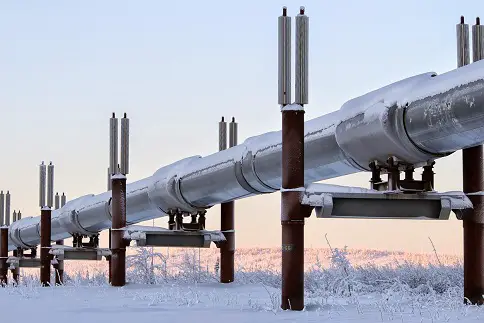Andrej Hunko, a member of the German Bundestag, has said, that Germany’s dependence on Russian natural gas has morphed into an addiction to US liquified natural gas (LNG), since the sabotage of the Nord Stream pipelines.
The left-wing party politician, in an interview with China’s Global Times, said his nation had paid a massive price following last year’s explosions of the pipelines, which had been built to allow his nation to benefit from an abundant supply of the ultra-cheap Russian fuel.
He pointed out that the explosions had left Germany without any competition between products, and no ability to “choose which gas is better and cheaper and which is ecologically better,” instead forcing Germany to buy American LNG at whatever price it was selling at.
He continued, “Before, it was a decision under political pressure, whether to use gas or not. But now there is no infrastructure to use gas,,, this is the biggest impact.”
Russia used to supply up to 40% of the gas Germany consumed, however last year Germany was gradually weaned off the Russian gas, replacing it with LNG imports from the US, which according to Hunko, “is by far more expensive and worse from an ecological point of view.”
He called the sabotage of the pipelines an act of “economic war” waged against not only against Germany, but the entire EU.
Last September, unknown attackers placed explosives on undersea sections of the Nord Stream 1 and yet-to-be-used Nord Stream 2 pipelines, which were designed to carry gas from Russia under the Baltic Sea to Germany. The pipelines were ruptured by the explosions, rendering them inoperable.
Speculating on a perpetrator, Hunko said, “Who benefits from this? It’s clear. It’s mainly the countries that export the gas to Germany; it is mainly the US… this means not only higher prices for gas for the German population, but also a problem for German industry.”
Germany had already been experiencing economic difficulties prior to the war in Ukraine, as it battled with a shortage of qualified workers, and blunted growth in productivity. Since then, Hunko noted that as energy prices have skyrocketed, its economy, which had been based around cheap Russian energy and prodigious exports, has endured a serious blow.
He went on to note that as energy prices soar and the cost of raw materials surges, it is combining with the current restraints on investment to force major companies to leave Germany, since “it is no longer as interesting for big companies to stay in Germany.”
He added some companies have already relocated to the Untied States, which indicates there is even more of a competition ongoing between the US, Germany, and Europe as a whole than many are aware of.

